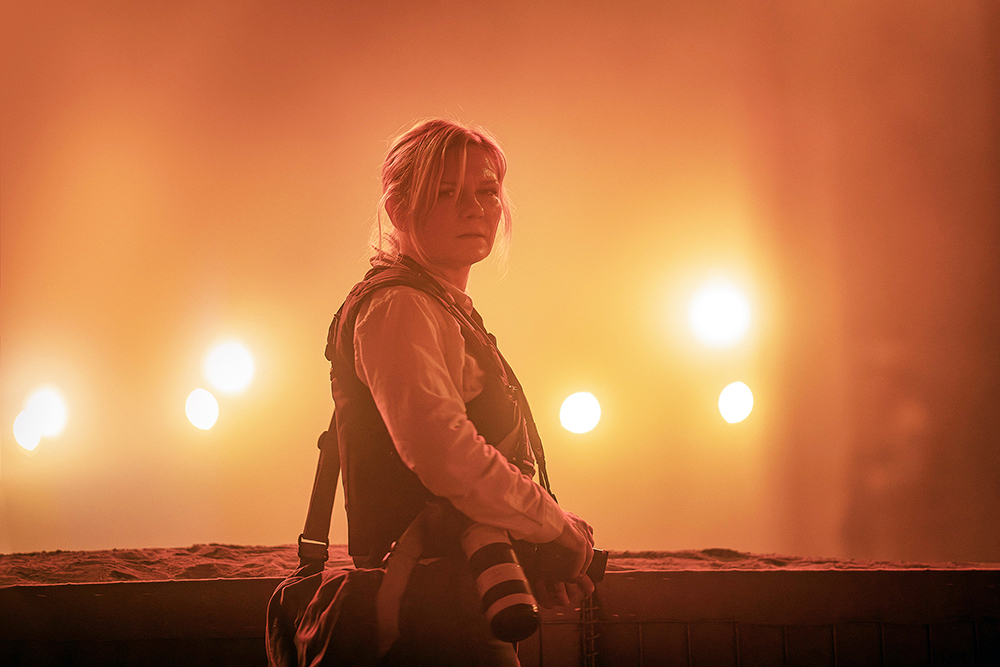“I find that violence is very ambiguous in movies. For example, some films claim to be antiwar, but I don’t think I’ve really seen an antiwar film. Every film about war ends up being pro-war.”
Since Francois Truffaut, the great French filmmaker and critic, said that to Gene Siskel in a 1972 interview, many have speculated what he meant. Film and military propaganda have gone together practically since the invention of the medium. There are any number of great films that are antiwar in intent: All Quiet on the Western Front, Paths of Glory, and Apocalypse Now, just to name a few. But what I think Truffaut was getting at is that, for filmmakers, combat is just too sexy. There are the life or death stakes that plotting thrives on, plenty of kinetic motion, and lots of explosions. Who doesn’t love a good explosion?
And that is precisely the problem. Even if you want to condemn militarism, wanton killing, destruction, and weaponized rape, the viewer is going to thrill to the exciting images and start rooting for one side to “win.” But this isn’t college football, this is human tragedy.
Alex Garland makes his intentions quite clear in Civil War. Early in the film, photographer Lee Smith (Kirsten Dunst) muses to her old friend Sammy (Stephen McKinley Henderson) that when she sent images of war zones back to home to America, the implicit message was “Don’t do this! And, here we are …”
In this undefined near future, the United States has fractured into four warring alliances of states: The Loyalists, who stuck with the former Union after the unnamed President (Nick Offerman) took on an unconstitutional third term; the New People’s Army of the Northwest; and the Florida Alliance, which is basically the old Confederacy except for Texas, which has joined California in the Western Forces.
Sitting in a hotel lobby in Manhattan, Sammy convinces Lee and her writer partner Joel (Wagner Moura) to let him join them on a trip to Washington, D.C., where the President is besieged in the White House. Sammy compares the situation to the “race to Berlin,” when the Nazi war machine collapsed in 1945, and Russian and American forces pulled out all of the stops to see who could grab the most territory before the surrender. (A weary Sammy observes that, once D.C. falls, the other factions will inevitably turn on each other.)
The only thing that matters now is how the President goes down, and that’s the story Lee and Joel are after. The other passenger in their beat-up Ford Expedition is Jessie (Cailee Spaeny), a novice photographer who idolizes Lee. But Lee doesn’t think Jessie’s got what it takes to witness war and make news content out of it — or maybe, it’s that Lee sees herself in Jessie, before her heart went hard from watching countless people die.
Making the hero of the piece a journalist instead of a soldier is Garland’s way to make an actual antiwar film. The road trip across the Northeast is alternately harrowing and surreal — often both at once, as in the scene where Lee and Joel, caught between two dueling sniper teams, hide in a suburban yard decorated for Christmas.
Garland takes inspiration from the breathless suspense of Children of Men, The Thin Red Line’s moments of transcendence amidst the carnage, and the journey into ultimate darkness of the aforementioned Apocalypse Now. But the film Civil War most closely resembles is Full Metal Jacket, which director Stanley Kubrick described as being about “the phenomenon of war.” Lee’s journalistic perspective lends the story objectivity. As she follows one unit of irregulars through a pitched firefight, we start to root for them. Then, Garland undercuts the emotional connection, as Lee photographs the victors gleefully machine gunning their prisoners.
It’s Kirsten Dunst’s job to make sure Kubrickian clinical detachment doesn’t sour into misanthropy. She’s absolutely riveting. As the horrors mount, Lee’s hard facade is slowly chipped away. Watching Jessie lose her rookie idealism and embrace the thrill of battle only makes it worse.
Civil War is as brilliant as it is harrowing. It’s been 160 years since we’ve seen real war in North America, even as we have been inundated with images of conflict from all over the world. This is not a film about who is right and who is wrong in our current political struggle. It’s about what war looks like up close — and what America will look like if the better angels of our nature fail.
Civil War
Now playing
Multiple locations
